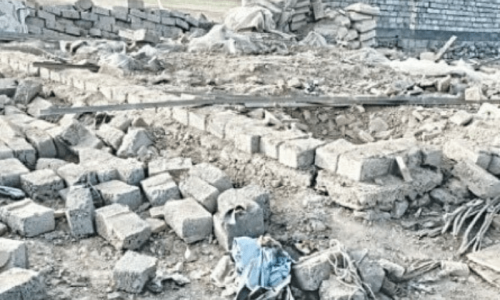PESHAWAR: Forty-one percent of the Afghan refugees who returned to their homeland over the years cite fear of arrest or harassment as the leading reason for their return.
This information was released by the United Nations High Commissioner for Refugees (UNHCR) in its March 2015 Afghan Refugees Repatriation Fact Sheet for Khyber Pakhtunkhwa and the Federally Administered Tribal Areas (Fata).
A total of 10,777 refugees have been repatriated between January and March of this year, the majority of whom were from host communities.
After the Army Public School (APS) attack in December last year, the repatriation of Afghan refugees has spiked. Around 3,000 to 4,000 refugees left for Afghanistan each month from January to March this year; during the same time period in 2014 (January to March), a total of 761 refugees had left Pakistan for Afghanistan.
There are currently 965,301 Afghan refugees living in Pakistan─ 53pc of these live in host communities, while 47pc live in 64 refugee villages. UNHCR says repatriation of all refugees may not be possible by December 2015.
The greatest influx of refugees occurred during the late 1970s and the 1980s.
According to the UNHCR report, a total of 2.3 million refugees have been repatriated since 2002, with the highest number ─ 811,299 ─ repatriated in 2002, and the lowest ─ 6,394 ─ in 2014.
The most popular province of asylum for refugees is KP, with 52pc of refugees settling in both urban and rural areas of the province. Azad Jammu and Kashmir (AJK) is the next popular option, followed by Punjab, with 25pc and 23pc of refugees settling in these regions, respectively.
UNHCR reveals 'forceful repatriation' of refugees
Jacques Franquin, head of the UNHCR sub-office, in a gathering organised by UNHCR Peshawar for the launch of the fact sheet, said Afghan refugees are being forcefully repatriated after the brutal APS attack. Political and administrative pressure has been cited as the major cause of refugees fleeing to their homes across the border.
Franquin went on to say that UNHCR is not only a humanitarian agency, but also a protective agency with an international mandate of protecting refugees, and that the government of Pakistan should honour the repatriation agreement and cooperate with the humanitarian agency to ensure voluntary return of Afghan refugees to their homeland.
However, he did not clarify whether Pakistan had agreed upon Dec 31, 2015 as a deadline for repatriation of refugees, and said it was impossible to repatriate all refugees by the end of the year.
But KP Information Minister Mushtaq Ghani, while talking to Dawn.com, denied that refugees were being pressurised into leaving the country. "We are only taking action against unregistered refugees given the alarming law and order situation in the country, especially in KP," he said.
Ghani said no heavy-handed tactics have been used against registered Afghan refugees, adding that no one had forced them to leave Pakistan. "We are implementing the policy under the National Action Plan (NAP) and action will only be taken against those who have not been registered with the government."












































